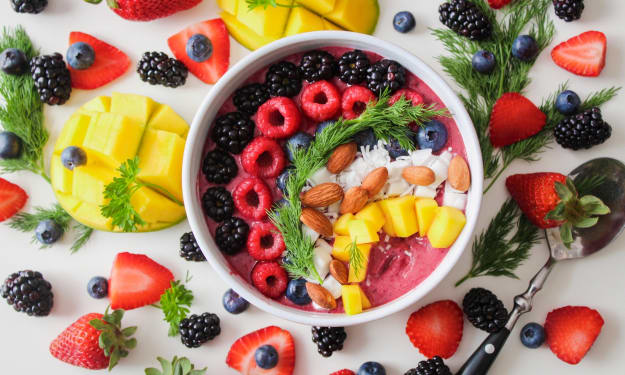The Connection between Poor Diet and Hair Loss
Diet And Hair Loss Correlation

The Connection between Poor Diet and Hair Loss
Introduction
Hair loss is a common concern that affects millions of people worldwide. While there can be various factors contributing to hair loss, one often overlooked aspect is the connection between poor diet and hair loss. The old saying, "You are what you eat," holds true when it comes to the health of your hair. This article will delve into the impact of nutrition on hair health, exploring the link between a poor diet and hair loss.
1. Understanding the Basics of Hair Growth
1.1 The Hair Growth Cycle
To comprehend the connection between diet and hair loss, it's crucial to understand the basics of hair growth. The hair growth cycle consists of three phases: anagen, catagen, and telogen. The anagen phase is the active growth phase, while the catagen phase is a transitional phase, and the telogen phase is the resting phase.
1.2 The Role of Nutrition in Hair Growth
Proper nutrition plays a vital role in maintaining healthy hair. Hair follicles require a steady supply of essential nutrients to support the growth and maintenance of strong, lustrous hair. Deficiencies in key nutrients can disrupt the hair growth cycle, leading to hair loss and other hair-related problems.
2. Nutritional Deficiencies and Hair Loss
2.1 Protein Deficiency
Protein is an essential building block for healthy hair. Inadequate protein intake can weaken hair strands, making them more prone to breakage and thinning. Incorporating lean meats, eggs, legumes, and dairy products into your diet can provide the necessary protein for optimal hair health.
2.2 Iron Deficiency
Iron deficiency is a common cause of hair loss, especially in women. Iron is crucial for transporting oxygen to the hair follicles. Without an adequate oxygen supply, hair follicles become weak and can enter the telogen phase prematurely, resulting in hair shedding. Consuming iron-rich foods such as leafy greens, red meat, and lentils can help combat iron deficiency and promote healthy hair growth.
2.3 Vitamin D Deficiency
Vitamin D is essential for hair follicle cycling and hair shaft formation. Studies have shown a correlation between vitamin D deficiency and hair loss conditions like alopecia areata. Exposure to sunlight and consuming vitamin D-rich foods like fatty fish, fortified dairy products, and mushrooms can ensure optimal vitamin D levels and support healthy hair.
2.4 Omega-3 Fatty Acid Deficiency
Omega-3 fatty acids are known for their anti-inflammatory properties and their role in maintaining scalp health. A deficiency in these essential fats can lead to dry scalp, dandruff, and hair loss. Including sources of omega-3 fatty acids, such as fatty fish, flaxseeds, chia seeds, and walnuts, in your diet can nourish your hair and scalp.
3. Foods for Healthy Hair
3.1 Leafy Greens and Berries
Leafy greens like spinach and kale are rich in vitamins A and C, which promote sebum production and collagen synthesis, respectively, keeping the scalp and hair healthy. Berries, such as blueberries and strawberries, are packed with antioxidants that protect hair follicles from damage caused by free radicals.
3.2 Nuts and Seeds
Nuts and seeds, like almonds, walnuts, and flaxseeds, are excellent sources of vitamin E, biotin, and omega-3 fatty acids. These nutrients nourish the hair follicles, promote hair growth, and prevent hair breakage and loss.
3.3 Lean Meats and Legumes
Lean meats, including poultry and lean beef, provide high-quality protein necessary for strong and healthy hair. Legumes, such as lentils and beans, are rich in iron, zinc, and biotin, all of which support hair growth and prevent hair loss.
Conclusion
Maintaining a well-balanced diet is crucial for overall health, and it also significantly impacts the health of your hair. The connection between poor diet and hair loss cannot be overlooked. Nutritional deficiencies can disrupt the hair growth cycle and lead to hair loss and other hair-related problems. By incorporating nutrient-rich foods into your diet, such as lean meats, leafy greens, nuts, seeds, and berries, you can promote healthy hair growth and minimize the risk of hair loss.
FAQs (Frequently Asked Questions)
1. Can poor diet alone cause hair loss?
A poor diet alone may not directly cause hair loss, but it can contribute to hair loss by disrupting the hair growth cycle and weakening hair strands.
2. Are there specific diets that promote hair growth?
There is no one-size-fits-all diet for hair growth. However, a well-balanced diet rich in protein, vitamins, minerals, and healthy fats is generally beneficial for maintaining healthy hair.
3. How long does it take for dietary changes to improve hair health?
The timeframe for noticing improvements in hair health after making dietary changes can vary. It may take several months for new hair growth to become noticeable.
4. Can supplements help in combating hair loss caused by poor diet?
Supplements can help fill nutritional gaps, but it's always best to obtain essential nutrients from whole foods. Consult with a healthcare professional before starting any new supplements.
5. Are there any other lifestyle factors that can affect hair health?
Yes, factors like stress, hormonal imbalances, and certain medical conditions can also impact hair health. It's essential to maintain a healthy lifestyle overall for optimal hair growth and maintenance.





Comments
There are no comments for this story
Be the first to respond and start the conversation.